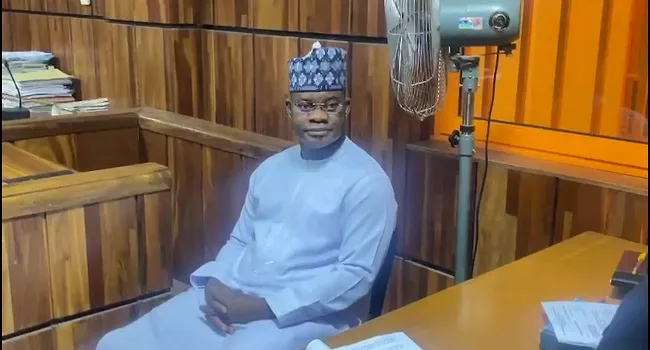The Court of Appeal in Lagos has reinstated the interim forfeiture order secured by the Economic and Financial Crimes Commission (EFCC) to seize 14 properties allegedly linked to Kogi State Governor Yahaya Bello.
Justice Yargata Nimpar, who delivered the lead judgment virtually on Wednesday, held that the Federal High Court erred in striking out the forfeiture order based on Section 308 of the 1999 Constitution, which grants sitting governors immunity from civil and criminal proceedings.
The appellate court ruled that while Section 308 protects governors from prosecution, it does not shield assets suspected to be proceeds of crime from investigation or preservation. Justice Nimpar emphasized that such properties can be temporarily forfeited, pending the outcome of a final forfeiture hearing.
The unanimous decision, concurred with by Justices Danlami Senchi and Paul Bassi, directed the EFCC to proceed with its application for the final forfeiture of the assets.
In February 2023, Justice Nicholas Oweibo of the Federal High Court in Lagos had granted the EFCC’s request for an interim forfeiture of 14 properties in Lagos, Abuja, and Dubai. EFCC counsel, Rotimi Oyedepo (SAN), argued that the assets were suspected to be proceeds of crime.
Justice Oweibo had also ordered the EFCC to publish the interim order in two national newspapers and invite interested parties to show cause why the properties should not be permanently forfeited.
In response, Governor Bello opposed the order, claiming the properties were acquired before he took office and invoking Section 308 to argue that the EFCC lacked the authority to take any legal action against him while in office.
His legal team further argued that the Proceeds of Crime (Recovery and Management) Act, 2022 could not be applied retroactively since the properties in question were allegedly acquired before the law came into effect. They also contended that the EFCC’s action violated a restraining order issued by a Kogi State High Court, which barred the agency from investigating state accounts. In addition, they argued that the Federal High Court in Lagos lacked jurisdiction over the matter because the properties were located outside Lagos, and Governor Bello resides in Lokoja.
The EFCC maintained that it had the legal authority to investigate and seize assets suspected to be linked to unlawful activity, including a luxury apartment at the Burj Khalifa in Dubai. It also sought the forfeiture of an additional N400 million allegedly linked to the same probe.
However, in April 2023, Justice Oweibo vacated the interim forfeiture order, ruling that the court lacked jurisdiction due to Bello’s constitutional immunity.
The EFCC appealed, and the Court of Appeal has now overturned that ruling, concluding that the trial court should have determined the status of the assets rather than striking out the case.
The appellate court dismissed Governor Bello’s preliminary objection, restored the interim forfeiture order, and ordered the EFCC to proceed to the next phase—final forfeiture proceedings.


